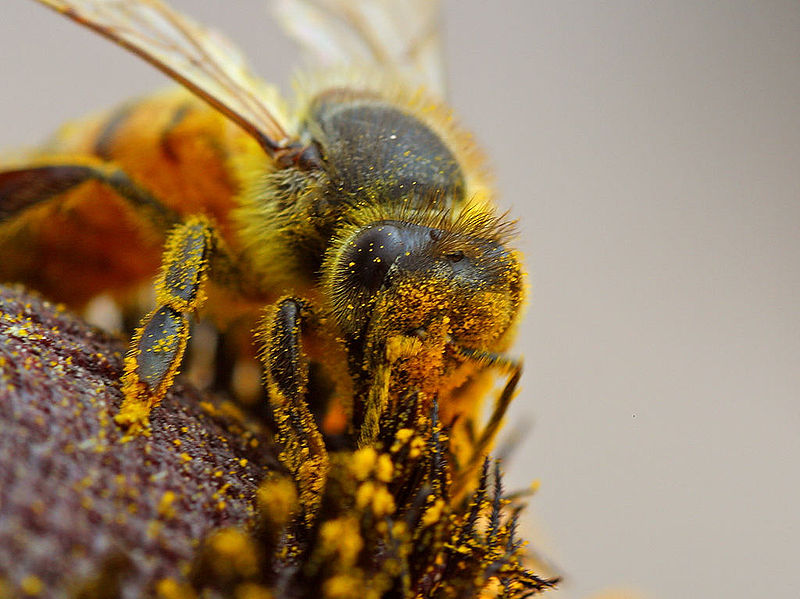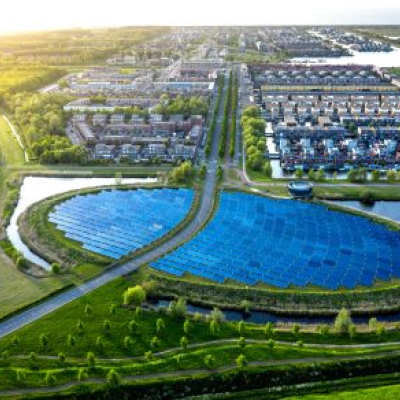Wherever you are in the world, beekeeping is a guaranteed source of income. The international market varies but in developing countries honey production remains a vital means of subsistence. It supports the environment too, but plummeting bee numbers now jeopardise food chains in developing and developed countries alike, and experts are scrambling to coordinate a response.
Organic Honey
There is no single beekeeping model, but rather a series of different models that depend on environmental aspects. In Mexico and Brazil, conditions favour an organic model.
|
Organic production must respect natural systems and cycles. Sustainable production should be achieved as far as possible with the help of biological and mechanical production processes, through land-related production and without the use genetically modified organisms (GMO). Source: European Commission Directorate for Agriculture and Rural Development |
Organic products have been a trend in Europe for many years. According to European Commission statistics: “During the last decade, organic area in the EU improved by about 500 000 hectares per year.”
But, while their production may be on the up, organic products are typically more costly to produce.
Organic farmers within the EU must abide by many regulations in order to have their food labelled as organic.
“Here in Europe, problem number one is the contaminants,” said Etienne Bruneau from the Belgian non-profit beekeeping centre for research and information, CARI (Centre Apicole de Recherche et d’Informations). Beekeepers must work in pesticide free areas, making it almost impossible to produce uncontaminated products, with the exception of a few high mountain zones with a more protected environment.
The situation is different in Latin America and Central Africa for instance, where countries do not face the same environmental problems.
“They can easily find zones that are completely uncontaminated by pesticides, but the problems they face in producing organic products are rather technical,” said Mr Bruneau, such as how to respect international quality standards.
In the following video, Mr Bruneau explains another advantage of producing honey in Africa: the sanitary aspect. These bee colonies constantly migrate, swarming and building one hive after another, leaving behind all the bacterial problems related to an immature state, which are naturally cleaned by the honeycomb moth. As a result “all the pathological problems related to colonies we use [in Europe] won’t exist.”
A Secure Income
Mr Bruneau said while not particularly lucrative, beekeeping gives a reliable income for producers.
“It provides economic security, but also importantly – which is why very often we use beekeeping in development programmes - when you do beekeeping you respect your environment,” Mr Bruneau said. “Because you’re not using dangerous products and also you’re respecting the flora. The flora in these countries is often trees. The biggest problems they face are deforestation. When there are beekeepers in place, they know that if we cut the trees there will be no more honey. So they preserve the trees to maintain their hives and to produce honey thus increasing their income. It’s an important balance; all the elements are essential.”
Unfortunately, according to Mr Bruneau, it is “practically impossible to produce honey that can be sold at a good price on the international market”.
In Belgium, honey is sold around € 10 / Kg, while in Central Africa the price is closer to € 1 / Kg.
It may be easier to produce organic honey in Central Africa, there is not much value in exporting it.
“The big problem, which they will realise very quickly, is packaging and storing their honey will cost them a lot of money”, Mr Bruneau said. “They then need to transport it to distribution points which will also cost them a lot of money, so that finally, they will make a profit which is four times less than the value on the local market.”
Bee Week 2014
Yet, we can’t speak about the bees without speaking about their declining numbers.
“Imagine a human being living with nothing but cornfields [as a food source], it is not viable,” said Dr Bach Kim Nguyen speaking at European Week of Bees and Pollination, known as Bee Week for short. Experts believe that unless something is done to combat declining bee numbers, this is a situation we could be facing in the future. “In Belgium we import 20% of our fruit and vegetables. If we didn’t have bees, we would be importing more than 50%. There is a real impact on humans, there is a real urgency.”
Last year capacity4dev.eu reported on the increase in honeybee mortality around the world and looked at how the European Union is taking action to counteract this. One year on, we spoke with Dr Nguyen to see how the situation is progressing.
|
Find out more about Bee Week 2013 Declining Bee Numbers: Measures to Protect the Pollinators in Africa and Asia As the crucial role of bees as pollinators of the world’s food supply is increasingly becoming common knowledge, reports about the serious decline of honeybee populations in Europe and the USA have alarmed governments, the private sector and the general public. A similar decline in Africa and Asia has the potential to further threaten the world’s biodiversity, in addition to compromising the food security and livelihoods of millions of rural resource-poor farmers, as well as having negative impacts on the agricultural income of commercial farmers. Read more here. |
Many people know that the bees are dying, but Dr Nguyen believes that people are neither aware of the urgency of this problem, nor of the widespread impact this could have. “They don’t see that there is a lack of biodiversity in our environment”.
Dr Nguyen is a Research Assistant for the Bee Team at the University of Liege. Experts have been “highlighting bee mortality since the 90s. We’re in 2014 now and after 20 years, this problem still exists.” One of the reasons for this is a lack of coordination between different sectors tackling this issue.
Three factors affect bee mortality: pesticides, diseases and environmental food shortages. These need to be addressed simultaneously. Dr Nguyen explained that if experts focus on only one factor “we forget the others and the bees will continue to die.” While there are many working groups forming to address bee mortality, they are working in parallel and not together. Subsequently, Bee Week 2014 focused on increased collaboration between scientists, beekeepers, farmers and public institutions, to avoid duplicating efforts.
“The aim is to be able to create an entity, a platform that will be able to put into place concrete actions. That’s the final objective, but it’s the implementation that’s difficult. Bee Week has that objective. We’ve put together scientists, with diverging opinions, we’ve put together politicians, with diverging opinions, and now we would like to mix these together, the political and scientific spheres - even if they have differences of opinion, to find solutions to preserve the bees, our environment, our biodiversity and beyond that our food diversity.”
Bee Week 2013 achieved the first step, by uniting 62 countries across four continents - Africa, Asia, Europe and America - through COLOSS (Prevention of Honeybee COlony LOSSes) a honeybee research association. This year’s Bee Week focused on the second step: creating a political working group to avoid duplication, and next year Dr Nguyen believes should see the realisation of the final stage – taking action.
| Last year we reported on the EU's announcement to invest € 13.1 million in bee health, including an agreement with the African Union–InterAfrican Bureau for Animal Resources and icipe to establish an African reference laboratory for research and capacity building on bee health. Find out more about how this project is progressing in the Food & Nutrition Security - ROSA Group. |
This collaborative piece was drafted by the capacity4dev.eu Coordination Team. Teaser image courtesy of Bob Peterson, Florida, Planet Earth!






(1)
Log in with your EU Login account to post or comment on the platform.
Today, Elizabeth Truss, the UK's Secretary of State for Environment, Food and Rural Affairs, announced a 10-year plan to help bees and pollinators.
Comparing bees to football stars, she said: “Their work is valued at around £430m – four times the salaries of the top 10 players in the Premier League. Like the football players, they require excellent accommodation, training and the best diet and nutrition to make them world-beating. That’s why I am ensuring across all land uses there are strong incentives to provide pollinators with habitat, forage and space.”
A rather brilliant comparison that hits home, especially in the UK!
Read the full article: https://www.theguardian.com/environment/2014/nov/04/bees-uk-protect-liz…